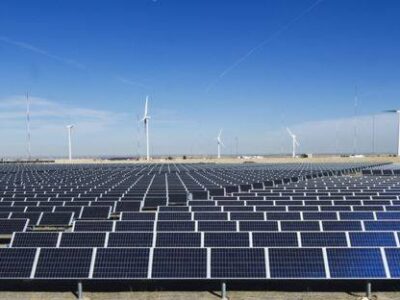A growing group of Utah state lawmakers is voicing concerns over air quality policies that are in need of reform. The Clean Air Caucus has existed for more than a decade, with members including state senators and representatives from both sides of the aisle. Members of the caucus are united around a singular goal of enacting policy changes that will reduce pollution and improve air quality throughout the state.
While the group has already seen small victories within the state, members say that the time has come for ushering in more big-ticket legislation. These items would come at a relatively large price tag compared to past state initiatives, but members argue it a worthy investment that would bring Utah up to speed in combating air pollution. There are currently 22 proposals centered around air quality reform poised to make the rounds through the state’s legislative chambers. Many of these proposals have shifted from bills to appropriations requests, mainly due to the cost required for seriously addressing the issue. To Rep. Steve Waldrip, R-Eden, these increased funding requests are more than justified. “We have ample evidence that it impacts health, it impacts our children’s learning ability, it impacts the ability of Utah to attract jobs”, says the representative. Waldrip argues that reform is essential not only for the physical health of state residents but also for the “economic well-being” of Utah.
The largest among these proposals is a $350 million request to double-track the commuter rail system known as Frontrunner. Stretching from Ogden to Provo, the rail system would see significant improvements to efficiency and fewer delays if double-tracked, as the current single-track system only allows for trains to pass one another at key stations. Double-tracking the system would allow for increased volume, leading to fewer drivers and decreased emissions.
Additional proposals look to tackle everything from air quality monitoring to electric vehicle investment. Rep. Steve Handy, R-Layton, has requested funding for air quality monitors to be attached to three electric buses so that varying levels of air pollution across the state can be measured over time. Rep. Suzanne Harrison, D-Draper, has requested funding for the Clean Air Retrofit, Replacement, and Off-road Technology (CARROT) program, which gives incentives to those who replace their traditional “dirty” vehicles and equipment with cleaner alternatives. Gov. Spencer Cox, who proposed the $350 million Frontrunner request, has requested another $6 million for the installation of electric vehicle charging stations in Utah’s rural areas.
These state proposals look to follow federal legislation that is considered by many to be a significant step in addressing the nation’s impact on climate change. As part of the $900 billion omnibus coronavirus relief package that was passed in December of this past year, new environmental initiatives will curb the use of pollutants like hydrofluorocarbons (HFCs) and will direct $4 billion in funding for a variety of solar, wind, hydropower, and geothermal research and development projects centered on clean energy storage, energy efficiency projects, and the removal of carbon from the earth’s atmosphere. The bill marks what is “perhaps the most significant form of climate legislation Congress has ever passed”, says Grant Carlisle, senior policy advisor at the National Resources Defense Council.
Addressing the use of everyday pollutants will be a particularly notable move for federal clean air initiatives. HFCs are commonly used in refrigerators and air conditioners and can be hundreds of times more damaging to the environment than carbon dioxide. This new legislation allows the EPA to take measures to reduce HFC use and production by as much as 85 percent over the next 15 years. This provision indicates an opportunity for the United States to sign onto the Kigali Amendment, an agreement involving more than 100 sovereign nations to replace HFCs with clean alternative refrigerants.





